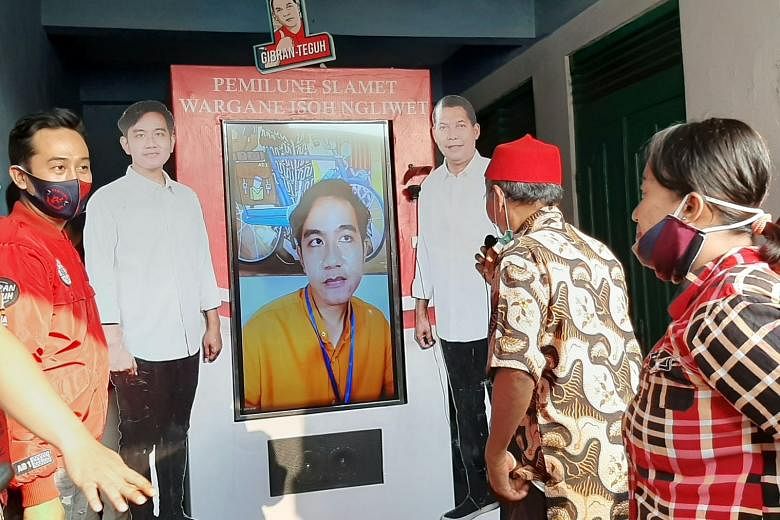Amid pandemic, candidates turn to Zoom and TikTok in Indonesia's regional elections
Dangdut star Jenita Janet hollered "SMS" while gyrating sexily in a tight top and hot pants in front of thousands of people packed in a stadium in I Gorontalo, Sulawesi, in September.
She was referring to the acronym for Mr Saipul Mbuinga and Ms Suharsi Igirisa, who are running for regent and deputy regent of Pohuwato in Wednesday's (Dec 9) regional elections.
The audience cheered and danced, oblivious to Covid-19 health protocols such as safe distancing and the wearing of masks.
Rallies, concerts, sporting races and bazaars form the bedrock of election campaigns in Indonesia, whose 270 million people make up the world's third-largest democracy, after India and the United States.
Indonesia's decision to go ahead with regional polls sparks fears of virus spreading

Indonesian President Joko Widodo found himself trapped between a rock and a hard place when he had to decide whether to hold a regional election in the midst of the coronavirus pandemic.
For months, critics pressured him to delay the Sept 23 polls, known as pilkada, to elect 270 governors, regents and mayors across the country. He acceded once, pushing the date to Wednesday (Dec 9).
Yet, with the election date fast approaching, the virus is far from contained in Indonesia, which remains the worst-hit country in South-east Asia with more than 575,000 cases and 17,740 deaths, as at Sunday.
Pressed again to postpone the polls, the President would not budge. His administration argued that delaying the elections would deny people their constitutional rights to choose their leaders and would create a power vacuum in the regions.
Coronavirus poses new challenge for Indonesia's spot-on pollsters

Pollsters in Indonesia have been unerring since direct presidential elections were introduced in 2004.
But this unblemished track record - largely due to survey methods and consistent voter behaviour - will be sorely tested at the upcoming regional elections because of the Covid-19 pandemic.
The polling companies' most recent success was at the 2019 presidential election when they gave incumbent President Joko Widodo a lead of 10-20 percentage points over his erstwhile rival Prabowo Subianto. Mr Joko eventually won re-election with 55 per cent of the vote against Mr Prabowo's 44 per cent.
Pollsters have also correctly predicted the winners in previous regional elections, particularly in the key provinces of South Sumatra, West Java, Central Java, West Java and Sulawesi.

